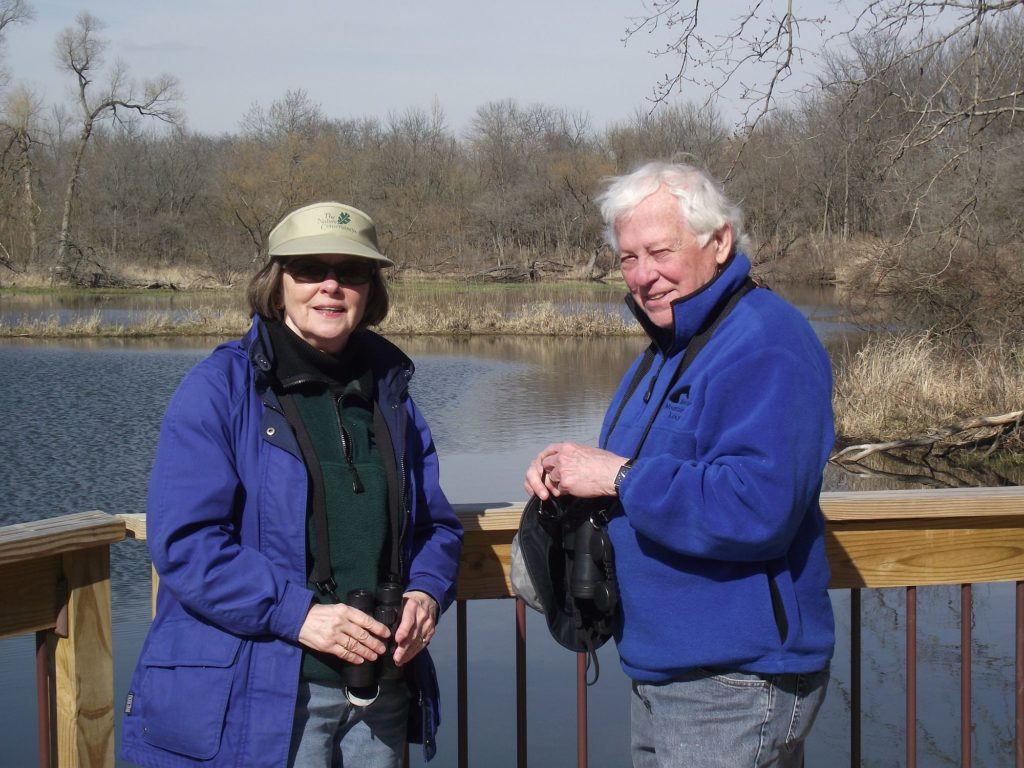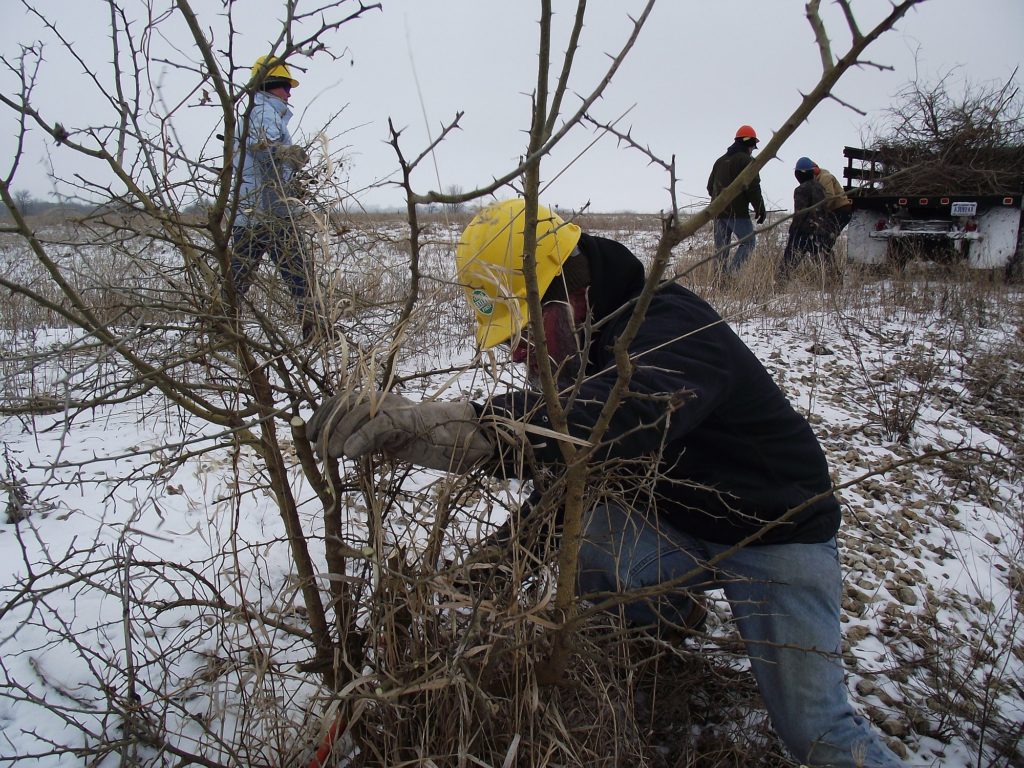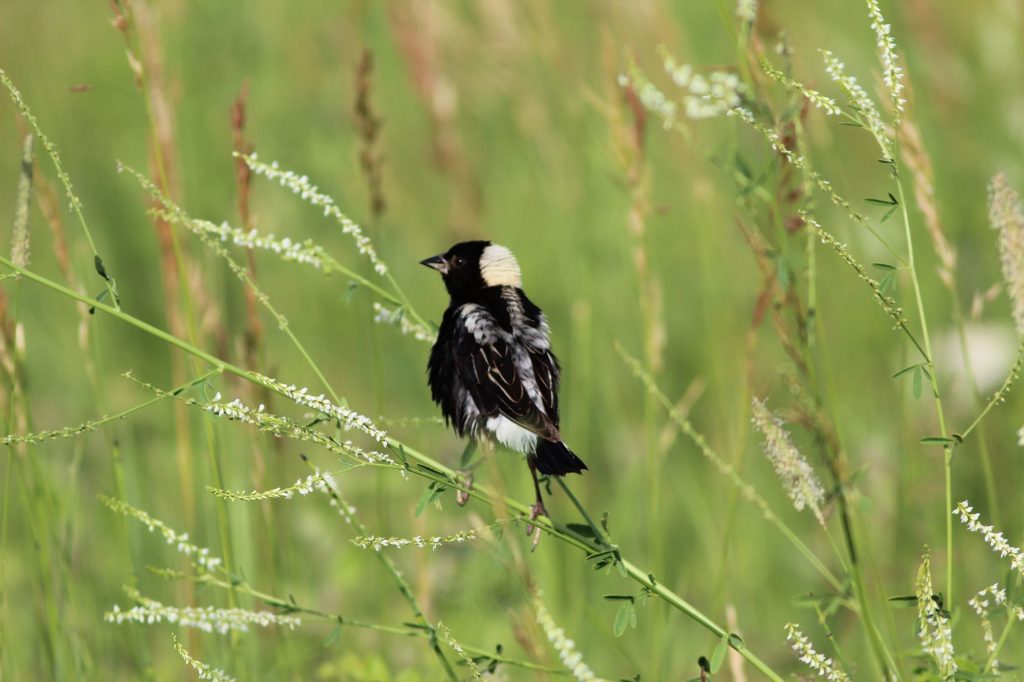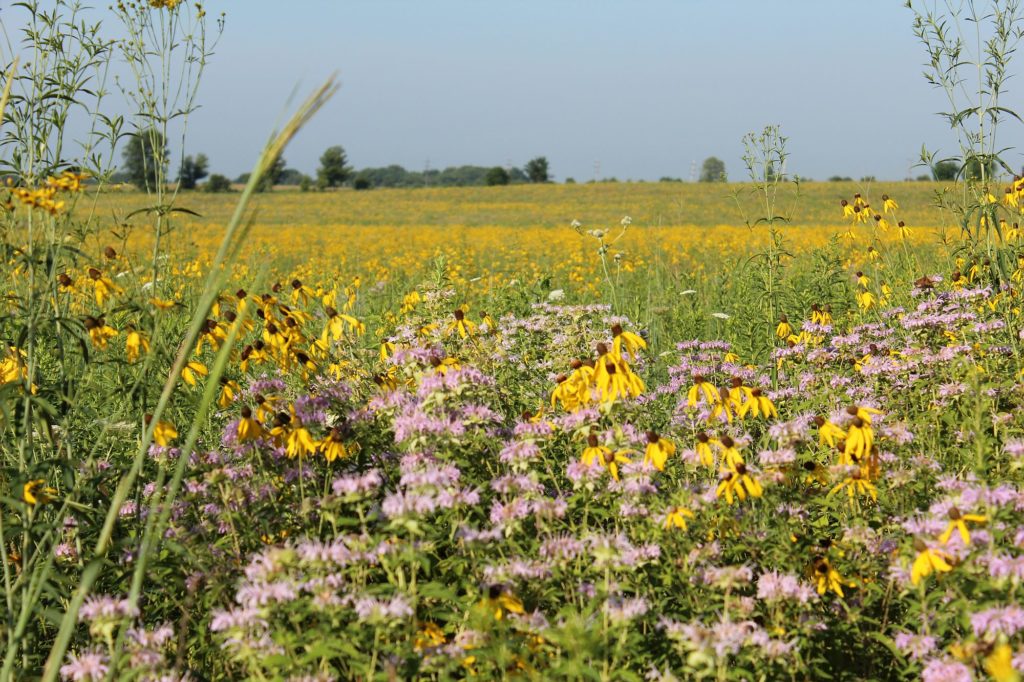
The best Christmas present I get every year is a poem from my dear friend, Jim Ballowe. This year’s gift, as with most of Jim’s poems, is liberally laced with images from nature:
“At the Strait of Juan de Fuca, the blue heron, / gangly-legged in the kelp, whipcords an eel / against a rock, then bill pointing skyward / consumes the wriggling whorl in peristaltic comedy / we who lack such a neck can only imagine…”
In its entirety, Jim’s “Pas de Deux” is actually a love poem to his wife, with whom he shares a deep love and appreciation for the natural world and the beautiful drama inherent in it.
Over the years, I’ve written my fair share of poems to lovers, to nature, to lovers of nature. In my salad days, I even attempted one in French, tinged with German and English:
“Il fait neige encore. / Pourquoi? / Peut-etre parce-que la terre / La terre est fatigue / Und mude / And sad…”
Oy.
Suffice it to say I’m no poet. But hiking through Midewin this winter recalls my youthfully pretentious poem to mind. “Il fait neige encore.” “It’s snowing again.” Not much snow, mind you, but it brings to an end a record 335 consecutive days without at least one inch of snow on the ground. This, coupled with below normal rainfall and one of the hottest summers on record last year has left the landscape of Midewin as dry, as arid, as sere as I’ve ever seen it.

“Pourquoi?” “Why?” Well, argue with the cause all you may, but this is what climate change looks like. Prairie Creek Pond, a relict ox bow of Prairie Creek, is fast disappearing.
The many ditches that yet run through Midewin, relicts of its farming and arsenal past, have gone completely dry. The mix of wetland and wet prairies that dot many of the restored areas of Midewin are devoid of, well, much of anything that’s wet.

Many people I meet are thrilled that we have “escaped” winter. No snow is first and foremost a matter of personal convenience. No shoveling. No messy commutes to work.
I, too, appreciate not having to shovel snow before commuting to my job downtown. But come springtime, will there be enough water in Prairie Creek Pond to support the full chorus of toads and frogs that fill the cool evening air with melodious mating calls?

Will enough water return to the ditches to support the beaver that made this now-abandoned dam? Will there be enough standing water in South Patrol Road Prairie, Grant Creek Prairie and other restored areas to support returning flocks of ducks, geese, cranes and other water-loving birds?
Even more so than in the poetry of my youth, I see, I sense, I feel a great fatigue in the arid earth. A weariness. A sadness. But what to do? Getting your mind around something as big and complex as climate change can be a real brain cruncher. So much so that putting your head in the sand sometimes seems like a perfectly rationale response: “Ne pas a penser. Ne pas a choisir,” as I concluded in my poem. “To not think. To not choose.”

Fortunately, there are many dedicated volunteers and staff at Midewin who remind me that restoring such a large, landscape scale site is one of the best ways to mitigate the effects of climate change. And so, I do what I can. I help clean seeds, plant prairie plugs, cut buckthorn, yank garlic mustard and monitor grassland birds.
If I were to write a French poem today about how it feels to help recover healthy populations of native plants and animals at Midewin, it might go something like this:
“Bon.”
“Good.”

